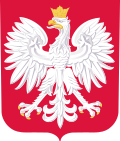| | |||||||||||
| |||||||||||
All 24 seats in the Silesian Sejm 13 seats needed for a majority | |||||||||||
This lists parties that won seats. See the complete results below.
| |||||||||||
 |
|---|
Parliamentary elections were held in the Silesian Voivodeship on 8 September 1935 [1] [2] to elect deputies to the Silesian Sejm.